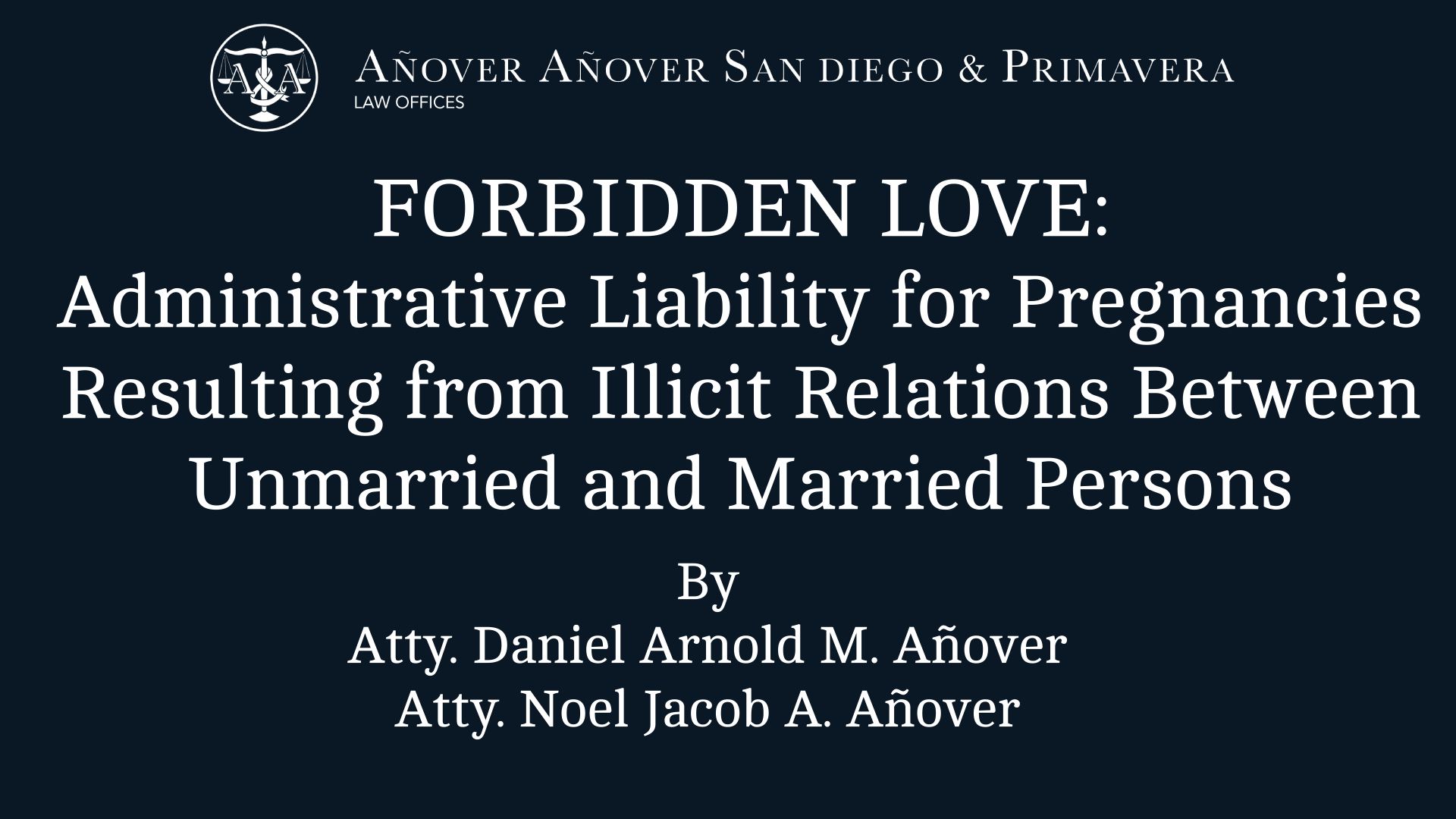It is the experience of many that love, no matter how irrational, finds validation when it is freely given and received. In the immortal words of the Supreme Court, “The heart has reasons of its own which reason does not know." (Chua-Qua v. Hon. Clave, G.R. No. 49549, 30 August 1990).
Would it then be right to punish a pitiable heart, already torn asunder by social convention and crushing loneliness, the moment it finds succor in the arms of forbidden love?
In the context of the workplace, specifically schools, can the pregnancy of a schoolteacher by a married man be considered a punishable offense meriting the ultimate penalty of her dismissal from employment? In Union School International v. Dagdag (G.R. No. 234186, November 21, 2018), the Supreme Court expounded on the requisites which must concur for a pregnancy to be considered a punishable offense, to wit: (1) that the sexual relations and resulting pregnancy is disgraceful and immoral according to public and secular standards; (2) that there must be substantial evidence to prove such disgracefulness and immorality; and (3) that there must be a legal impediment to marry between the progenitors, at the time of conception.
The Supreme Court has likewise elucidated on the matter of immorality in the case of Santos, Jr. v. NLRC (350 Phil., 560-573) where two married teachers engaged in extra-marital relations: On the outset, it must be stressed that to constitute immorality, the circumstances of each particular case must be holistically considered and evaluated in light of the prevailing norms of conduct and applicable laws. American jurisprudence has defined immorality as a course of conduct which offends the morals of the community and is a bad example to the youth whose ideals a teacher is supposed to foster and to elevate, … Thus, in petitioner’s case, the gravity and seriousness of the charges against him stem from his being a married man and at the same time a teacher.
xxx
As a teacher, petitioner serves as an example to his pupils, especially during their formative years and stands in loco parentis to them. To stress their importance in our society, teachers are given substitute and special parental authority under our laws.
Consequently, it is but stating the obvious to assert that teachers must adhere to the exacting standards of morality and decency. There is no dichotomy of morality. A teacher, both in his official and personal conduct, must display exemplary behavior. He must freely and willingly accept restrictions on his conduct that might be viewed irksome by ordinary citizens. In other words, the personal behavior of teachers, in and outside the classroom, must be beyond reproach. From the foregoing, it seems obvious that when a teacher engages in extra-marital relationship, especially when the parties are both married, such behaviour amounts to immorality, justifying his termination from employment.
In Article III, Section 3 of the Code of Ethics of Professional Teachers, we find “Every teacher shall merit reasonable social recognition for which purpose he shall behave with honor and dignity at all times and refrain from such activities such as gambling, smoking, drunkenness and other excesses, much less illicit relations.”
The Supreme Court keenly observed, “One of the ironic verities of life, it has been said, is that sorrow is sometimes a touchstone of love.” (Libi v. Intermediate Appellate Court, G.R. No. 70890, 18 September 1992) Indeed, no one emerges from love unscathed; all get singed, some more than others.
Happy Hearts month!
ATTY. DANIEL ARNOLD M. AÑOVER (dama@anoverlaw.org) is a partner of the Firm. Link earned his Bachelor of Laws from DVOREF College of Law in 2001 and was admitted to the Bar in 2002, building on his background in management and social sciences from Leyte Normal University and the University of the Philippines. With extensive experience in employment and labor relations, environmental law, real estate, and litigation, he has served as a notary public, a managing partner at a law firm, corporate legal counsel, and lecturer in constitutional, commercial, and civil law.
ATTY. NOEL JACOB A. AÑOVER (nja@anoverlaw.org) is an associate lawyer of the Firm. Jak earned his Juris Doctor from Ateneo Law School in 2022 and was admitted to the Bar in 2023, with experience in litigation, labor and employment, taxation, immigration, business compliance, and corporate law.

